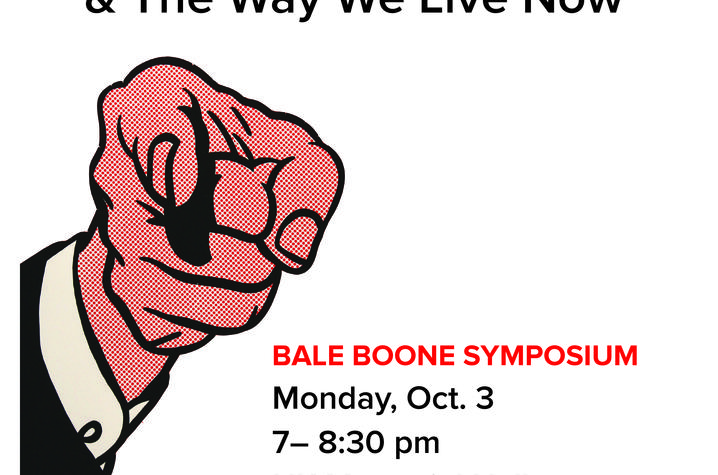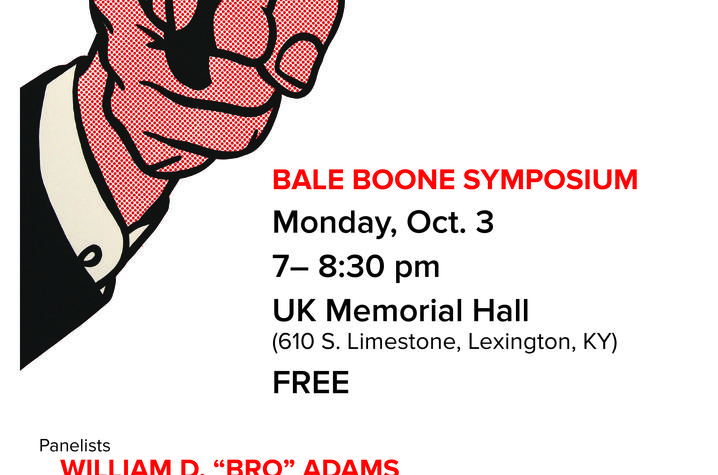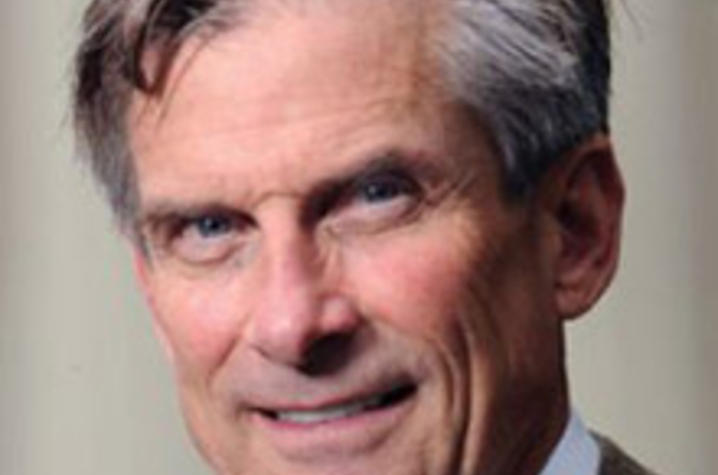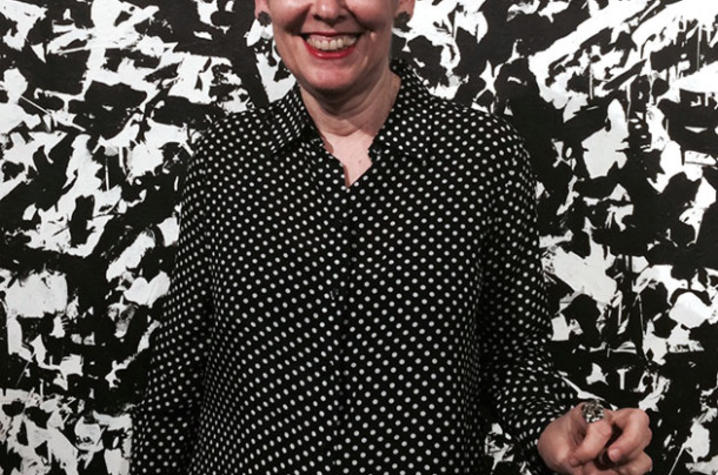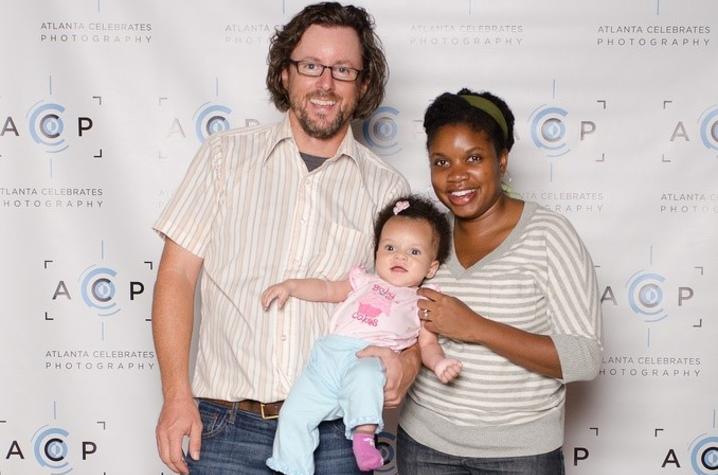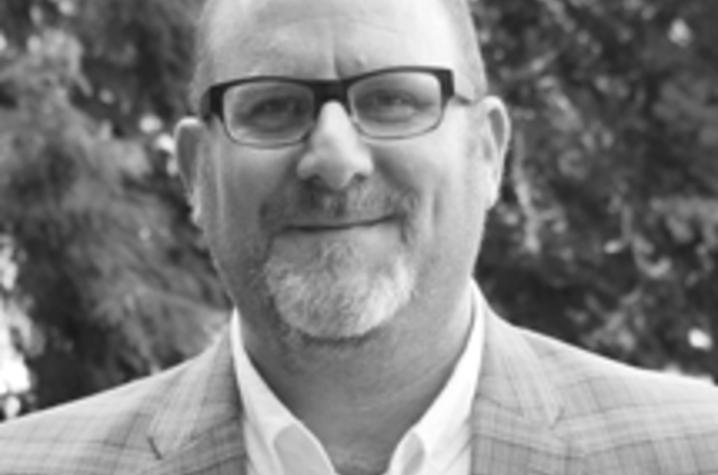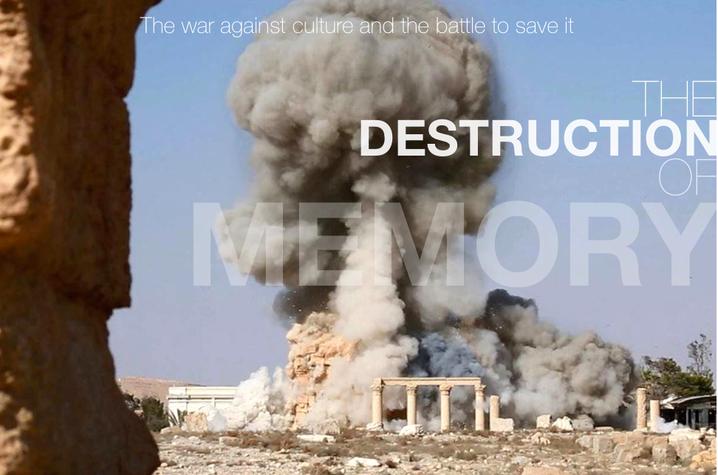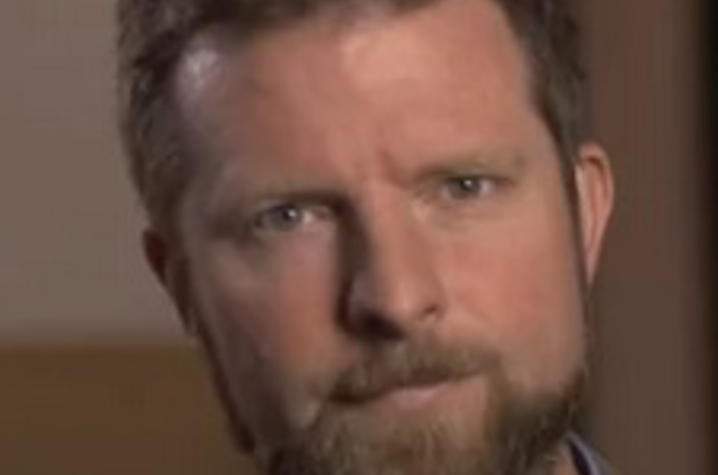Our Digital World - Blessing or Curse? Bale Boone Symposium Explores Impact of Connectivity
LEXINGTON, Ky. (Sept. 28, 2016) — Are we gaining or losing connection in this smartphone age of hyperconnectivity? International scholars will explore this question at the University of Kentucky Gaines Center for the Humanities' upcoming Bale Boone Symposium, "Paying Attention and the Way We Live Now," running Oct. 3-13. The symposium is free and open to the public.
In today's world, we constantly shift our focus from one screen to another. We text instead of talking because texting seems more convenient and (maybe) less risky. We’re always multitasking, and it seems ever harder to focus on one thing at a time.
These new realities challenge many age-old beliefs about human connectedness and raise some big questions: Is our digital age shortening our attention spans, or enhancing our ability to multitask, or both? Is the ease with which we can now communicate with each other across time and space helping or harming our ability to connect with each other? What challenges and/or opportunities do shortening attention spans pose for students and for teachers? How is the production of culture (art, music, literature, theatre, etc.) and its reception affected by this new reality?
It is these questions and more that will be addressed as part of three events presented at the Bale Boone Symposium.
First up, the symposium will host a panel discussion on the digital world's impact on culture with National Endowment for the Humanities (NEH) Chair William “Bro” Adams, celebrated artist Mira Schor, and Michael David Murphy and Alyson West, co-creators of the We Are the 15% project. The talk, moderated by UK Art Museum Director Stuart Horodner, will begin 7 p.m. Monday, Oct. 3, at Memorial Hall.
William D. “Bro” Adams is the 10th chairman of the NEH. Adams, president of Colby College in Waterville, Maine, from 2000-2014, is a committed advocate for liberal arts education and brings to the endowment a long record of leadership in higher education and the humanities.
Mira Schor is a New York-based artist and writer noted for her advocacy of painting in a post-medium visual culture and for her contributions to feminist art history. Schor’s work balances political and theoretical concerns with formalist and material passions. A central theme in her paintings is the experience of living in a moment of radical inequality, austerity and accelerated time, set against the powerful pull of older notions of time, craft and visual pleasure. Currently a sampling of Schor's paintings are on display through Nov. 27 as part of the free public exhibition "Mira Schor: Time & Flesh" at the UK Art Museum.
Michael David Murphy and Alyson West are the creators of We Are the 15%, an ongoing photographic archive charting the changing face of the American family. Inspired by a Cheerios commercial, Murphy and West created a space to highlight American couples and families who have joined "the 15 percent," of new, interracial marriages in America. Featured on Katie Couric's talk show, MSNBC and Al-Jazeera, the couple's project illuminates how digital representation can lead to offline awareness, attention and community. Murphy is an artist, writer and digital director for Atlanta Celebrates Photography. West is a part-time forensic actor for law enforcement and a full-time editor for a tech company.
"The Family Breakfast Project: The Murphy-West Family" featuring Michael David Murphy and Alyson West, creators of We Are the 15%. Video produced by Cheerios.
Later that week, the symposium will present a film screening of "The Destruction of Memory" at 6:30 p.m. Wednesday, Oct. 5, in the Kincaid Auditorium of Gatton College of Business and Economics. Over the past century, cultural destruction — the purposeful destruction of buildings, books and art in order to erase collective memory and identity — has wrought catastrophic results on every continent. This 2016 film looks at how and why this has happened, and how the push to protect, salvage and rebuild has moved in step with the destruction. The screening will be followed with a discussion with the film's producer and director, Tim Slade, whose films have screened worldwide in cinemas, film festivals, in-flight and online.
"The Destruction of Memory" Trailer from Vast Productions on Vimeo.
The following week, the Bale Boone Symposium will close with its keynote address “Attention Disruption Disorder” by Michael Rock, founding partner and creative director of 2x4. One of the essential challenges of design is establishing spatial, commercial, conceptual or ideological coherences in the cacophony of contemporary experience. But if each coherence requires a battle for attention, are we winning or losing? Are we making things better or compounding the condition we’re trying to address? This talk will begin 6 p.m. Thursday, Oct. 13, in room 106 of White Hall Classroom Building.
Michael Rock, founding partner and creative director of 2x4, is a professor of design at the Yale School of Art, and an adjunct professor at the Columbia University Graduate School of Architecture. At 2x4, he leads a wide range of projects, both cultural and commercial, for Nike, Prada, Miu Miu, Kanye West, Target, Hyundai and many others. His writing on design has appeared in publications worldwide and he is currently a contributor to The New York Times T Magazine. Rock is the recipient of the 1999/2000 Rome Prize in Design from the American Academy in Rome and currently serves on the board of the academy. His critically acclaimed collection of essays and projects, "Multiple Signatures," was published by Rizzoli International in spring of 2013.
The Bale Boone Symposium, "Paying Attention and the Way We Live Now," is co-sponsored by the UK Art Museum and UK College of Design. The symposium is also a recipient of support from the National Endowment for the Humanities. For more information on the Bale Boone Symposium "Paying Attention and the Way We Live Now," contact the Gaines Center at 859-257-1537.
UK is the University for Kentucky. At UK, we are educating more students, treating more patients with complex illnesses and conducting more research and service than at any time in our 150-year history. To read more about the UK story and how you can support continued investment in your university and the Commonwealth, go to: uky.edu/uk4ky. #uk4ky #seeblue
MEDIA CONTACT: Whitney Hale, 859-257-8716; whitney.hale@uky.edu





